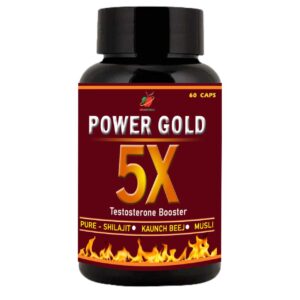Erectile Dysfunction (ED)
Erectile Dysfunction (ED) often referred to as impotence, is a prevalent medical condition characterized by the consistent inability to achieve or maintain an erection sufficient for sexual intercourse. It can result from a variety of physical and psychological factors, impacting a man’s sexual confidence and overall quality of life. While occasional difficulties with erections are normal, persistent ED warrants medical attention, as it can be a sign of underlying health issues such as cardiovascular disease, diabetes, or psychological distress. Fortunately, there are effective treatment options available, ranging from lifestyle changes and therapy to medications and medical devices, enabling many individuals to regain their sexual function and enhance their well-being.
Erectile Dysfunction : Causes
ED is a complex condition with various potential causes. It can result from both physical and psychological factors, often interplaying with each other. Understanding these causes is crucial for effective management.
Some of the primary causes of ED include:
Physical Factors
Cardiovascular Issues: Conditions like atherosclerosis (narrowing of blood vessels), high blood pressure, and heart disease can reduce blood flow to the penis, making it difficult to achieve an erection.
Obesity: Being overweight or obese can contribute to hormonal imbalances and impair blood circulation, increasing the risk of ED.
Neurological Conditions: Conditions such as multiple sclerosis, Parkinson’s disease, and spinal cord injuries can disrupt the nerve signals responsible for initiating and maintaining an erection.
Hormonal Imbalances: Low testosterone levels, a hormone crucial for male sexual function, can be a factor in ED.
Medications: Some medications, like certain antidepressants, antihypertensives, and sedatives, can have ED as a side effect.
Psychological Factors
Stress and Anxiety: High levels of stress and anxiety can interfere with sexual performance, leading to temporary or situational ED.
Depression: This mood disorder can affect libido and sexual desire, contributing to ED.
Relationship Issues: Problems within a relationship can lead to performance anxiety and ED.
Low Self-Esteem: Negative self-perception can impact sexual confidence, exacerbating ED.
Lifestyle Factors
Smoking: Smoking damages blood vessels and reduces blood flow, increasing the risk of ED.
Alcohol and Substance Abuse: Excessive use of alcohol and certain drugs can hinder sexual function.
Lack of Physical Activity: A sedentary lifestyle can contribute to obesity and cardiovascular issues, both of which are risk factors for ED.
Erectile Dysfunction : Symptoms
The hallmark symptom of ED is the consistent inability to achieve or sustain an erection sufficient for sexual activity.
Other symptoms
Reduced Sexual Desire: Some men with ED may experience a decreased interest in sexual activity due to anxiety or fear of performance failure.
Difficulty Maintaining an Erection: Achieving an erection may be possible, but maintaining it throughout sexual activity can be challenging.
Premature Ejaculation: ED can sometimes co-occur with premature ejaculation, where ejaculation occurs too quickly.
Delayed Ejaculation: In some cases, men with ED may have difficulty reaching orgasm.
It is important to note that occasional instances of difficulty achieving or maintaining an erection are normal and do not necessarily indicate ED. Diagnosis typically requires a persistent pattern of erectile difficulties over an extended period.
Erectile Dysfunction : Diagnosis
If you suspect you have ED, it is crucial to seek medical evaluation. A healthcare provider will perform a thorough assessment to determine the underlying causes and develop an appropriate treatment plan. The diagnostic process may include:
Medical History: Your doctor will ask about your sexual history, overall health, medications, and lifestyle factors that could contribute to ED.
Physical Examination: A physical examination can help identify any physical issues, such as abnormalities in the genital area or signs of cardiovascular disease.
Blood Tests: These tests can measure hormone levels, such as testosterone, and check for conditions like diabetes and cardiovascular disease.
Psychological Assessment: A healthcare provider may inquire about your mental health and emotional well-being to assess potential psychological causes of ED.
Imaging Tests: In some cases, imaging tests like ultrasound may be used to assess blood flow to the penis.
Nocturnal Penile Tumescence (NPT) Test: This test measures nighttime erections, as healthy men typically experience erections during sleep. Absence of NPT can indicate an underlying physical cause of ED.
Erectile Dysfunction : Treatment
The treatment of ED depends on its underlying cause and the patient’s overall health. Treatment options may include:
Lifestyle Modifications :
Regular Exercise : Engaging in physical activity can help maintain a healthy weight, improve blood circulation, and boost overall well-being.
Smoking and Alcohol Cessation: Quitting smoking and moderating alcohol consumption can significantly benefit erectile function.
Psychological Counseling:
Sex Therapy: Therapists can work with individuals or couples to address psychological factors contributing to ED, such as performance anxiety or relationship issues.
Medications: Oral medications are a common and highly effective treatment option for Erectile Dysfunction (ED). These medications, known as phosphodiesterase type 5 (PDE5) inhibitors, include drugs like sildenafil (Viagra), tadalafil (Cialis), and vardenafil (Levitra). They work by enhancing the body’s natural response to sexual stimulation, increasing blood flow to the penis, and facilitating the achievement and maintenance of an erection. Typically taken about 30 minutes to an hour before sexual activity, these medications have provided significant relief to countless individuals with ED, offering a convenient and discreet solution that has revolutionized the management of this condition. However, it is essential to use these medications under the guidance of a healthcare professional, as they may have potential side effects and interactions with other medications.
Power Gold Capsules
Medunitrica Power Gold capsules which is completely Ayurvedic, can be used to get rid of the problem of Erectile Dysfunction, Power Gold does not have any side effects.
Testosterone Replacement Therapy: If low testosterone levels are a contributing factor, hormone replacement therapy may be recommended.
Vacuum Erection Devices (VEDs): Vacuum Erection Devices (VEDs) are non-invasive, mechanical devices designed to help men with Erectile Dysfunction (ED) achieve and sustain erections. These devices consist of a cylindrical tube that fits over the penis, creating a vacuum by manually or battery-operated pumping the air out of the tube. This vacuum draws blood into the penis, engorging it and resulting in an erection. Once an erection is achieved, a constriction ring or band is placed at the base of the penis to maintain the firmness and allow for sexual activity. VEDs offer a drug-free and relatively low-cost option for managing ED, making them an appealing choice for individuals who prefer not to use medications or are seeking alternatives. However, it’s essential to learn how to use VEDs correctly to avoid potential side effects or injury, and consulting a healthcare professional is advisable to ensure proper guidance and supervision.
Penile Injections: Alprostadil, a medication, can be injected into the base or side of the penis to induce an erection.
Penile Implants: In cases where other treatments are ineffective, surgically implanted devices, such as inflatable or malleable penile implants, can provide a long-term solution for ED.
Lifestyle Changes: Addressing underlying health issues, such as diabetes or cardiovascular disease, can improve ED symptoms.
Prevention of Erectile Dysfunction
While some risk factors for ED are beyond an individual’s control, there are steps one can take to reduce the likelihood of developing this condition:
Maintain a Healthy Lifestyle: Adopting a balanced diet, engaging in regular physical activity, and avoiding smoking and excessive alcohol consumption can help maintain overall health and reduce the risk of ED.
Manage Chronic Conditions: Effectively managing conditions like diabetes, hypertension, and heart disease through medication and lifestyle adjustments can help prevent ED.
Seek Mental Health Support: Addressing stress, anxiety, and depression through therapy and counseling can improve overall well-being and reduce the risk of psychological ED.
Open Communication: Maintain open and honest communication with your partner about sexual concerns and issues within the relationship.
Conclusion
Erectile Dysfunction is a common and treatable condition that affects many men at some point in their lives. It is essential to recognize that seeking.


